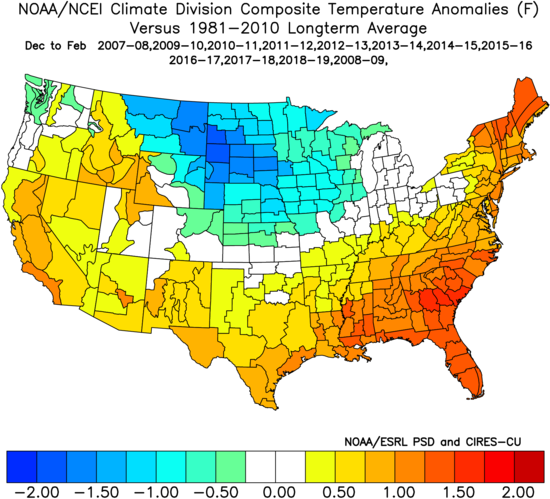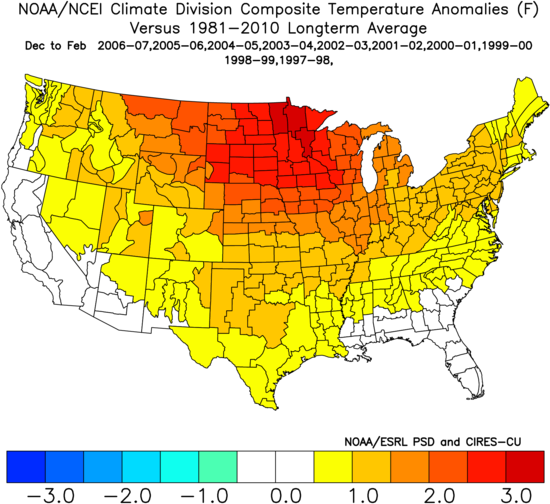
banshee8
-
Posts
5 -
Joined
-
Last visited
Content Type
Profiles
Blogs
Forums
American Weather
Media Demo
Store
Gallery
Posts posted by banshee8
-
-
On 11/15/2019 at 6:09 AM, Typhoon Tip said:
Keeps getting pushed back...
https://nsidc.org/news/inthenews/arctic-could-be-ice-free-2020-scientists-say
https://nsidc.org/news/inthenews/arctic-could-be-free-summer-sea-ice-2030
-
On 11/13/2019 at 4:43 PM, LibertyBell said:
In the original unedited post that wasn't mentioned. Either way, this "cold streak" was an island of cold in a sea of warmth. Unprecedented warmth was surrounding it on all sides.
Well, what is interesting is that trends in the U.S. don't always follow the global ones. For the lower 48, since 2007 we've seen a shift to colder continental patterns during the cold season that has been opposite of global trends.
Compare the winters since 2007 to the decade that preceded. Complete anomaly reversal, and definitely colder overall.


-
9 hours ago, SnoSki14 said:
Like Bluewave stated it's like a tiny ice cube in a massive hot ocean.
I'm pretty sure you'll still get isolated cold periods for several more decades until the warmth overwhelms everything unless of course we do manage to curb our emissions over the next 30-50 years.
Did you see the post I was responding to? He was saying we should be colder given the Alaskan blocking, and then referenced the weather in his backyard.
The western 2/3 of the country was very cold last month, including the all-time record for October.
-
On 11/8/2019 at 11:21 AM, LibertyBell said:
Yes, our first freeze is actually happening right when it's supposed to. With all that extreme warmth in Alaska, it should be much colder than this.
You realize that the coldest temperature ever recorded in the lower 48 in October happened last month, right?

Arctic Sea Ice Extent, Area, and Volume
in Climate Change
Posted
I mean, the NSIDC is a pretty mainstream source.
I think some predictions got a lot more aggressive after 2007, but most toned it down after about 2013.